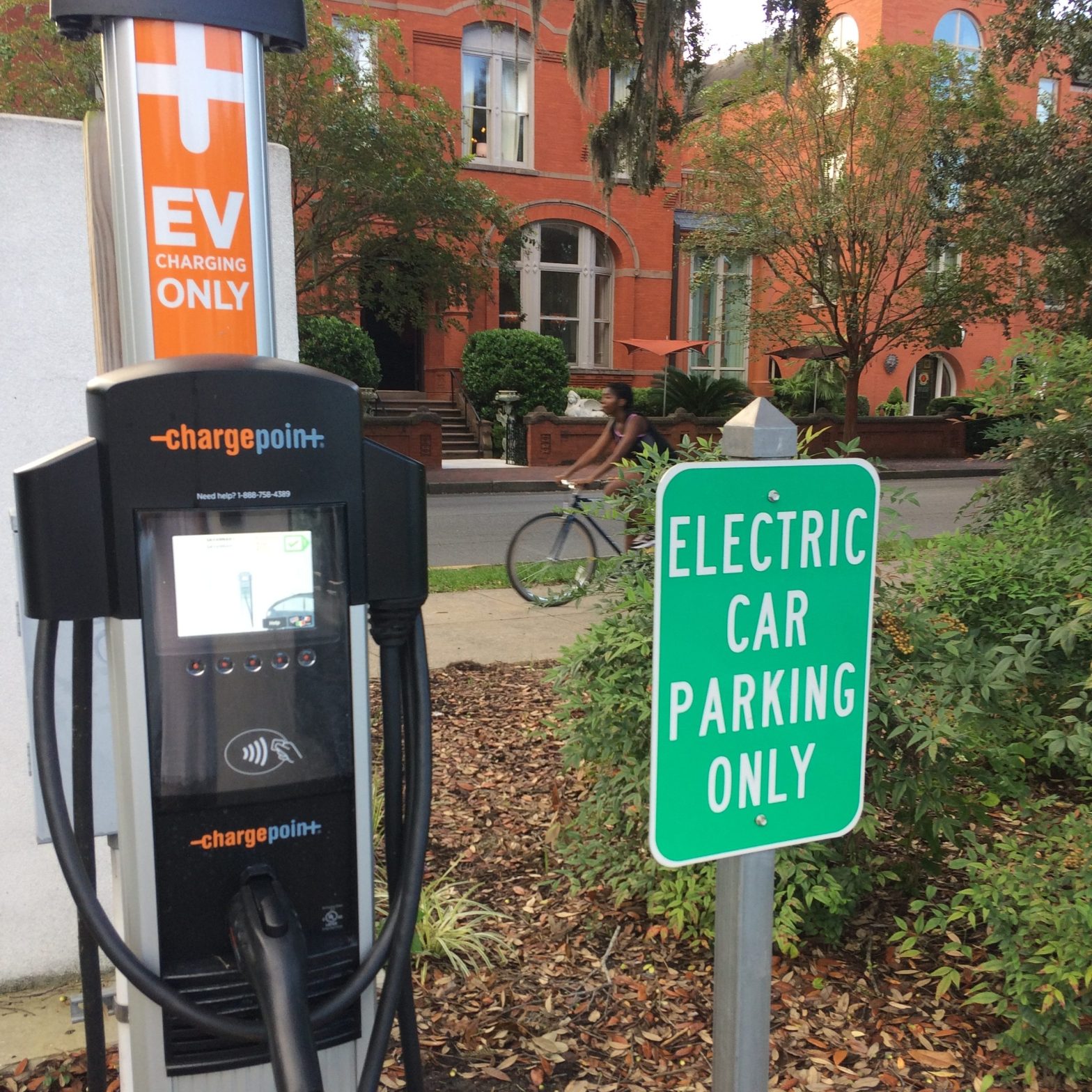Bipartisan Infrastructure Bill Will Help With EV Adoption but More Must be Done
COMMENTARY

Whether it’s transmission lines going up in flames during California wildfires or the statewide power outages that plagued the state of Texas during its unprecedented winter storm, there is no doubt the U.S. energy grid needs an upgrade. An outdated electrical grid is not only dangerous for those who end up without power, it’s also one of many issues that hinder our country’s transition to electric vehicles.
Though Congress recently passed a $1.2 trillion bipartisan infrastructure law — the Infrastructure Investment and Jobs Act — marking a major step towards updating and protecting our vulnerable energy grid, studies show lawmakers will have to approve an additional $350 billion if they plan to fully upgrade the grid to meet future standards and achieve the national target for electric vehicles set by the Biden administration. And given how critical a reliable and predictable source of energy is to ensuring Americans are comfortable purchasing EVs, upgrading the grid is essential, particularly if we want to meet ambitious goals like 100% carbon pollution-free electricity by 2035.
The money currently set aside in the IIJA for energy grid and EV infrastructure upgrades totals over $100 billion, but not only is that not enough money to fully address our grid issues, it will not ensure that the private sector is able to fairly compete in the EV charging market — without which we will end up with fewer chargers overall and delay EV adoption further.
One place lawmakers could start to ensure fair competition in the EV charging market is with utility rate structures. Small businesses like local fuel stops can help reduce range anxiety for EV drivers by installing charging stations at their urban, as well as remote and rural, locations.
Unfortunately, due to utility fees known as demand charges, these businesses have a hard time recouping the immense cost of installing and operating a charging station. The exclusion of small businesses from the EV charging market will make it harder for EV drivers to charge their cars, hinder the penetration of EVs into rural and small-town markets, and delay our ability to meet climate goals.
Demand charges are imposed on consumers whenever energy use spikes. However, due to the high-power consumption of EV charging stations, a small business gets hit with huge monthly charges that are many multiples more expensive than the electricity itself. Small businesses must decide whether to pay these high fees or close their charging stations entirely, because utility companies have control over power rates.
This monopolistic control creates an unfair advantage for utilities that also own and operate their own EV charging stations. Small businesses simply can’t compete when utilities use demand charges to stay ahead of the competition, in addition to passing on the cost of constructing and operating these chargers to their current ratepayers.
Fortunately, states like Alaska have already provided guidelines for preventing unnecessary fees for the usage of charging stations. The Regulatory Commission of Alaska recently agreed to eliminate demand charges for EV charging stations and will allow utilities to redesign their rate structures and resubmit them for approval.
Actions like these create fairer competition for small businesses to be able to participate in updating and expanding charging infrastructure in the U.S., which will result in more EV chargers.
Congress should follow Alaska’s lead and ensure that unfair demand charges cannot be levied on businesses that operate EV chargers.
America has taken a bold step in the right direction, but calming American concerns around whether there will be power available when they need it and a charging station at a convenient location is crucial to accelerating EV adoption.
Electricity rates should reflect this priority and allow local businesses to offer EV charging without getting sunk by unfair demand charges. Doing that, and fully updating the power grid, are imperative to building confidence and providing a more reliable infrastructure capable of handling the demand from new EVs.
Matthew Metz is the founder and co-executive director of Coltura, a nonprofit organization that aims to accelerate the switch from gasoline and diesel to cleaner alternatives.























